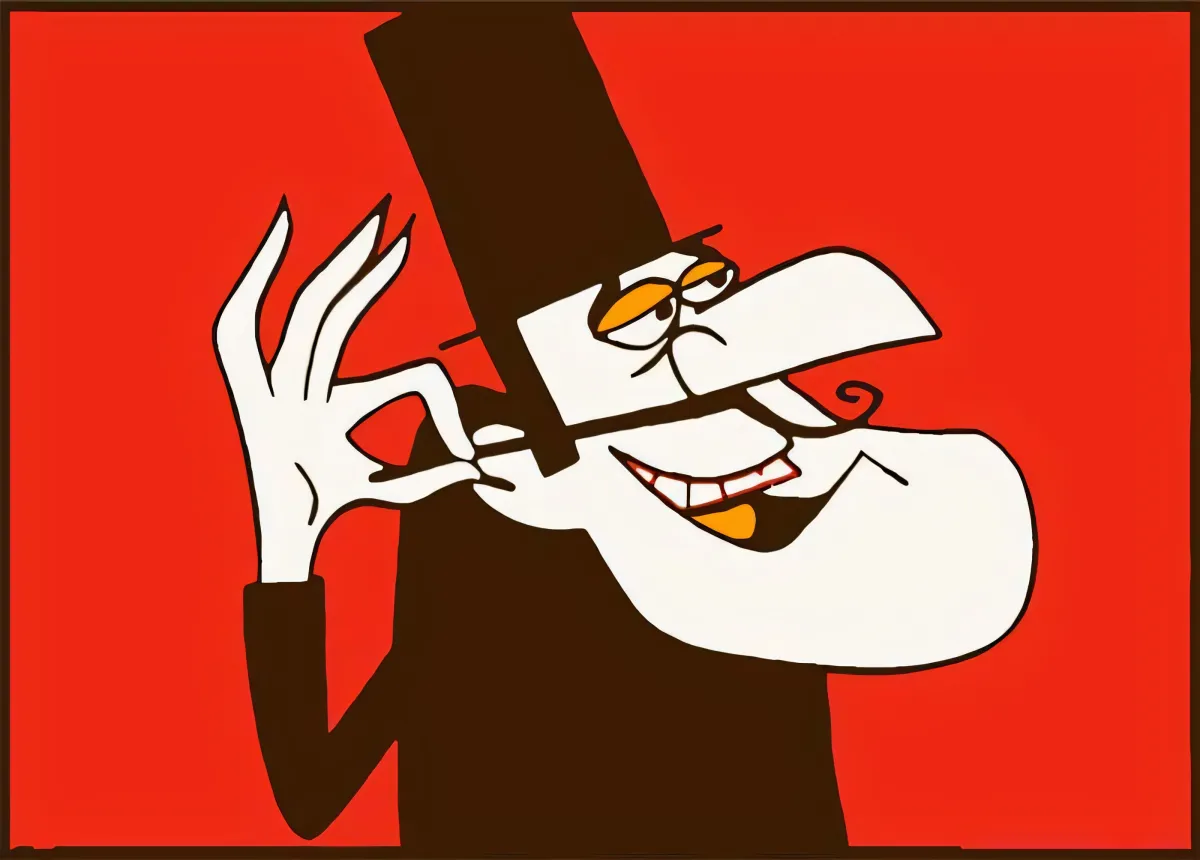Top 5 Ways To Develop An Antagonist In Your Novel
Our antagonist is the worst of ourselves and our experiences. What we seek to change and what we know we can't. Here are the 5 steps to develop an antagonist in our novel.
Step 1: Appearance
Would unassuming be the best trait for a monster to have? To be able to commit acts of chaos in broad daylight without suspicion. For the sake of pragmatic thought let's label this as one. In committing any crime the greatest priority is to avoid detection, as evidenced by the number of arrests there are, this is no easy task.
Given your novel is your take on the world there are multiple ways to handle this, but the simplest would be to have a very antagonist that blends in well. Having no distinguishing features to set them apart in a crowd; With such a disconnect between the actions and appearance, one would incriminate themselves first.
Step 2: Motive
"For the greatest form of good" its been reworked many a time, but the motive stands. The antagonist should have the foresight to predict future events and use that to justify their extremism, assuming the worst course of action is the most likely one.
Everything the antagonist does should be in their eyes preventative measures to their foreseen cataclysmic event. The best antagonist is one that has a point that can't truly be disproved and shakes the protagonist's stance on what they hold true.
Step 3: Connection to the protagonist
The deep connection of the protagonist and antagonist can be relayed in a shared history or in shared ideals. There has to be a level of understanding that would show a connection of minds.
Assuming they aren't going to be in direct contact all the time, the protagonist has to be able to understand the motive of the antagonist simply from observing their actions. Why would they do what they did? Understanding how someone's mind works is the basis of nearly all books. Make it something unique and engaging.
Step 4: Personality
"Love to hate them" give your audience a character to despise, nothing less than the worst of the worst. Creativity is key, draw from the wellspring of negativity that drives your worst impulses.
Your character can act on all these uninhibited, it really falls on you how bad the character can be. What thoughts go ignored in your mind because you couldn't bring yourself to face them? Show the audience through your antagonist and the lengths they will go to accomplish their goals.
Step 5: Final Confrontation
Where the bubbling tension spills over after excessive heat. The final confrontation is dramatic and intense, something the audience has wanted from the beginning. Pack your story full of narrative explosives to make sure the detonation is flawless. The more that rides on the battle the better, innocent lives being paramount.
However, give an air of vengeance, make it clear how this is deserved, how much suffering had to be turned into a strength. This is the release for the reader, one way or another everything has to come to an end.

Opinions and Perspectives
The hardest part for me is making the antagonist's actions logical while still being horrifying.
This approach to character development has completely changed how I write conflict.
Creating an antagonist who makes valid points has made my protagonist more complex too.
The emphasis on justified vengeance in the final confrontation really resonates with me.
Never considered using preventative action as a motivation. That's genuinely helpful.
These guidelines really helped me avoid the cartoon villain trap in my writing.
The shared history concept helps explain why the conflict matters so much to both characters.
I've found giving my antagonist small moments of kindness makes them more terrifying.
Writing an antagonist who predicts future catastrophes feels very relevant right now.
The advice about blending in works well, but sometimes a memorable appearance can be effective too.
Making the antagonist's motivations clear through actions alone is harder than it sounds.
Their point about tension building throughout the story is spot on. Can't just rely on the final confrontation.
Using our own dark thoughts as inspiration is powerful but requires careful handling.
I like how this approach forces us to think about the antagonist as a complete person.
These steps really helped me develop my antagonist's background story.
The final confrontation advice helps, but I think building up to it is equally important.
Anyone else struggle with making their antagonist too similar to ones they've read before?
The emphasis on understanding the antagonist's mind is crucial. Without that, their actions feel random.
My writing improved when I stopped thinking of my antagonist as a villain and more as an opposition force.
The concept of shared ideals really helps explain why the protagonist and antagonist clash so intensely.
I've found that giving my antagonist clear boundaries they won't cross makes them more believable.
Creating an antagonist who challenges the protagonist's beliefs has made my story much stronger.
The unassuming appearance advice works well for modern settings, but what about fantasy or sci-fi?
Wish they'd discussed how to write antagonists who genuinely believe they're doing the right thing.
Finding that balance between sympathetic and despicable is the real challenge.
The article could have addressed how to handle the antagonist's support system and followers.
Working on making my villain's actions preventative rather than reactive totally changed my story.
Step 4 feels a bit simplistic. Not all antagonists need to be despised to be effective.
Love the suggestion about making the antagonist's logic hard to disprove. Real moral complexity there.
The shared history aspect really helps explain why the conflict matters so much to both characters.
My antagonist became much more interesting when I stopped trying to make them purely evil.
The idea of using foresight to justify extremism is particularly relevant in today's world.
I appreciate how this approach forces us to think deeply about motivation rather than just actions.
Interesting how they emphasize the importance of the final confrontation being deserved.
These steps helped me realize my antagonist was too one-dimensional. Time for a rewrite.
Anyone else find it easier to write antagonists than protagonists? The freedom to explore darker themes is liberating.
The connection to the protagonist doesn't always need to be personal. Sometimes ideological conflicts work better.
I struggle with making my antagonists too obviously evil. This helps with adding nuance.
The preventative measures angle is brilliant. Makes me think of Watchmen's Ozymandias.
Sometimes the best antagonists are the ones who make valid points that make readers question themselves.
I've found giving my antagonist small victories makes the final confrontation more impactful.
The article should have discussed how to handle multiple antagonists working together.
My current antagonist started bland until I gave them a point of view that challenged my own beliefs.
What about antagonists who start good but gradually become villains? That transition can be fascinating.
The shared ideals concept reminded me of Batman and Joker. Two sides of the same coin.
Writing from personal darkness is powerful, but we should be careful not to get lost in it.
I find it interesting they didn't address redemption arcs. Not every antagonist needs to stay evil until the end.
The unassuming appearance advice really hits home. Just look at real-world criminals who blend in perfectly.
Never thought about using my own negative impulses as inspiration. That's both terrifying and brilliant.
Making the audience understand the villain's point of view while still opposing them is such a delicate balance.
I think they should have mentioned how important it is to give your antagonist moments of humanity.
The part about shared history making sense of motives really helped me fix my current draft.
What about antagonists who don't realize they're the bad guy? Those are some of my favorites to write.
I struggled with step 4 until I realized my antagonist didn't need to be purely evil to be effective.
The advice about understanding motives through actions alone is solid gold. Show don't tell at its finest.
This reminds me of why Magneto is such a compelling villain. He has valid points, just extreme methods.
I think they missed addressing how to handle the antagonist's personal relationships. That can add such rich complexity to their character.
The concept of narrative explosives is great. Building tension throughout the story makes the final confrontation so much more satisfying.
Not sure I agree with making everything preventative. Sometimes pure malice or greed can be just as compelling.
Completely agree about drawing from personal experiences. My best villain came from exploring my own fears and prejudices.
The article could have gone deeper into how to make the antagonist's actions consistently align with their motives.
I've found that giving my antagonist a sense of humor makes them much more memorable than just pure evil.
Anyone try writing an antagonist who's actually right about everything except their methods? That's real moral complexity.
The shared ideals concept is intriguing. It's like holding up a dark mirror to your protagonist.
When I write, I find it challenging to make my antagonists truly believable. These steps actually help break it down nicely.
I love how the article emphasizes the importance of justification from the antagonist's perspective. Makes them so much more complex.
The final confrontation advice feels a bit generic to me. Not every story needs a big explosive ending.
You've got a point about physical appearance, but I think what matters more is their psychological impact on the protagonist.
That part about understanding how someone's mind works really resonates with me. It's crucial for creating believable character dynamics.
While I understand the unassuming appearance angle, sometimes a physically intimidating villain can be incredibly effective if done right.
I actually tried this approach with my current novel. Making the antagonist blend in completely changed how I wrote the story.
The point about preventative measures is brilliant. It reminds me of Thanos. His methods were horrific but his concerns about overpopulation weren't entirely unfounded.
Interesting how they suggest drawing from our own negative impulses. I've never thought about channeling my dark thoughts into character development.
Anyone else think the shared history aspect between protagonist and antagonist is overused? Sometimes random evil can be more terrifying.
Really disagree with making antagonists 'the worst of the worst.' I think subtle villains are more effective than over-the-top evil ones.
The article makes a great point about motives. I've always believed that the best villains are the ones who think they're the heroes of their own story.
I find the emphasis on an unassuming appearance fascinating. Some of the most chilling antagonists are those who could be your next-door neighbor.
